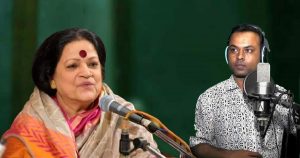David Cameron has rejected calls for Take That singer Gary Barlow to hand back his OBE after it emerged he had put money into a scheme ruled to be set up for tax avoidance purposes.
The chair of the Commons Public Accounts Committee Margaret Hodge had suggested Barlow “might show a bit of contrition by giving back his OBE”.
But the PM told ITV’s Good Morning Britain that that was not necessary. He added that Barlow had done a “huge amount” for the country. During the interview Mr Cameron said he was against “aggressive tax avoidance schemes”. Charity work He said: “If people go after these schemes and aggressively avoid tax they’re making it the case that everyone else has to pay higher taxes as a result.” “We should be very clear: tax evasion is illegal, you can be
prosecuted for that, you can go to prison. “Tax avoidance is, in these cases, these very aggressive tax avoidance schemes, they are wrong and we should really persuade people not to do them, and that’s why we have these court cases where the court looks at whether a scheme is more about avoiding tax than anything else. “The court was very clear in this case.” But asked whether he agreed with Mrs Hodge that Barlow should consider returning his OBE, Mr Cameron said: “I don’t think that is necessary, frankly. “Gary Barlow has done a huge amount for the country, he’s raised money for charity, he has done very well for Children in Need. The OBE was in respect of that work and what he has done. “Clearly this scheme was wrong and it is right that they’re going to have to pay back the money.” ‘Abuse of the system’ Gary Barlow is one of three members of the band Take That who may have to pay back millions of pounds in tax after a tribunal ruling. Barlow, Howard Donald and Mark Owen – along with manager Jonathan Wild – were among about 1,000 people who put money into schemes purportedly supporting the music industry. But tribunal Judge Colin Bishopp ruled the partnerships had actually
been set up for tax avoidance purposes. HM Revenue and Customs said they would not “tolerate abuse of the system”. The Take That stars and their manager invested money through a company called Icebreaker. Since March 2010, the four men have been directors of Larkdale LLP – one of 50 partnerships that Icebreaker arranged to harness tax reliefs that the government had intended would support those in creative industries. The tribunal found that shortly after money was put in to Larkdale LLP, it reported huge losses of more than £25m. Those losses could then be offset against tax, reducing the men’s tax bills. The BBC’s Andrew Verity said that while Barlow, Donald, Owen and Wild could face repaying millions of pounds between them for the tax relief applied to the losses, the exact amount was not known. While tax evasion is illegal, tax avoidance is not a criminal activity, he added. HMRC said that following Judge Bishopp’s decision, those involved would receive letters outlining how much tax they had to repay. An HMRC spokesman told the BBC that “anyone using a scheme that HMRC deems to be against the rules owes them money”. Lib Dem Chief Secretary to the Treasury Danny Alexander told the BBC:”One of the changes that we introduced in the Budget just a few weeks ago was to make sure that in future, if people participate in these sorts of schemes, they have to pay the money up front to the Exchequer. “They only get the money back out of the scheme if it is later proven to be successful. “What has happened in this case is that, under the old system, people were able to take the money that should have legitimately been paid in to the taxpayer, and it has taken years and years of effort and public money… to ensure that we eventually get the money handed back to us. “That is the change in climate that we are trying to effect, and I think being successful in doing so.” Labour leader Ed Miliband added: “We should make sure that we have rules in place to tackle tax avoidance, and that is the most important responsibility of government.” In total, the Icebreaker partnerships generated losses of £336m. HMRC pursued the issue through the courts after the Times newspaper first exposed Icebreaker in 2012. The members of the scheme have until 2 July to decide whether they want to appeal. HMRC said it would be seeking payment of the tax in the meantime. The other members of Take That were not involved in the scheme. It is rare, although possible, for honours, like an OBE or a knighthood, to be removed or refused. There have been some high profile examples of people returning their honours. Beatles legend John Lennon famously sent his MBE medal back to the Queen “as a protest against Britain’s involvement in the Nigeria-Biafra thing, against our support of America in Vietnam and
against ‘Cold Turkey’ slipping down the charts”. Despite this gesture, Lennon’s MBE was never formally annulled. Journalist Yasmin Alibhai-Brown is another MBE recipient to have returned her medal, but the honour was also never annulled. Ms Alibhai-Brown said she took the step in 2003 in protest against the war in Iraq. Former HBOS chief executive James Crosby asked for his knighthood to be removed in 2013 after MPs found that he had sown the “seeds of destruction” at the bank. The Honours Forfeiture Committee, which is chaired by civil service head Sir Bob Kerslake, considered the case and decided he should be stripped of the honour. The Queen, who has the final say, agreed, and Sir James became Mr Crosby. – BBC




